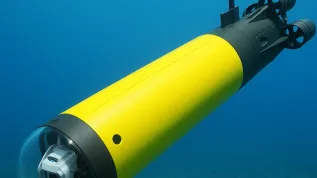
Opole University of Technology has won the European M-ERA.NET.2 network competition to finance ambitious international research projects involving work on new technologies.
According to the National Science Centre, 236 research applications were submitted in the call with 42 projects being selected for a total of EUR 32.2 million in funding. The list includes five projects that will be carried out with the participation of Polish research teams. Among them is the development of '3D print-thermal spray' systems for applications with dynamic and impact loading. The team leader is Professor Adam Niesłony from the Department of Mechanics and Machine Design at the Faculty of Mechanical Engineering of the Opole University of Technology. The project will be carried out with the participation of partners from Czechia and Germany.
Niesłony said: "Our project concerns the development of a new technology of surface treatment of elements obtained with the 3D printing technology to increases the resistance of structural elements to fatigue loads. It is obvious that 3D printing technologies have the potential to produce light and very complex elements. But it is necessary to ensure the required durability and reliability with different load modes. Cyclically changing and dynamic loads can be considered critical.”
The main goal of the project is the development of 3D printing technology, expanding it with a thermal spray system, which will allow to create a layer resistant to wear and corrosion.
Niesłony continued: “The composition of the coating and process parameters will be optimised. The results will improve the strength and durability of components produced with additive technology and allow for a wider range of applications, including energy, aviation, automotive, civil engineering, etc.”
The University of West Bohemia in Pilsen, the German Fraunhofer Institute and the Czech Academy of Sciences aor also involved in the project of scientists from the Opole University of Technology. The value of the project is nearly one million euros.
Vice-Rector for Science and Development at the Opole University of Technology, Professor Grzegorz Królczyk, emphasizes the opportunities that the participation of universities in this type of international research projects creates for the academic staff and Polish industry.
He said: “I am glad that our science goes beyond Poland, that we boldly and most importantly, effectively reach for international projects. M-ERA.NET 2 is a European network of public funding organizations that supports research programs on new materials and technologies to support the European Green Deal.”
The M-ERA.NET.2 competition covered the areas of modelling in materials science and machining; innovative surfaces; coatings and interfaces; high performance composites; functional materials, new strategies for advanced material-based technologies in medical applications, and additive manufacturing materials.
PAP - Science in Poland, Marek Szczepanik
masz/ mmu/
tr. RL













